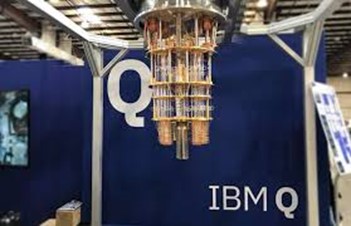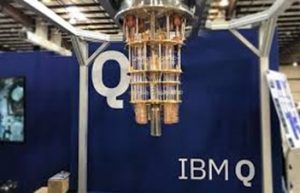
October 27, 2023, by Ben Atkinson
Faculty of Science Takeover: Quantum Computing in Physics
Throughout the 2023-4 Academic Year we are running a new feature on the LT blog, a Faculty Takeover month! Each alternate month through the year we will feature posts from a different faculty at the University, with posts every Friday highlighting interesting work related to technology in teaching and learning and showcasing unique projects from within the various disciplines across UoN. Starting in October, we have our Faculty of Science Takeover.
In the post below Professor Andrew Armour and Assistant Professor Adam Smith of the School of School of Physics & Astronomy reflect on their work to introduce approaches to quantum computing for undergraduate students in the school.
Quantum computing
There has been a revolution in quantum physics research over the last few decades which has led to the emergence of exciting new forms of technology like the quantum computer. Quantum computers operate in a very different way to standard computers, exploiting the counter-intuitive properties of their component parts which consist of `artificial atoms’ and display behaviour which is very different to that of the everyday objects we are used to dealing with. This means that quantum computers have the potential to solve some tasks far more efficiently than conventional computers, although there are others (like word processing!) for which they will never offer any advantage.
Although quantum computers are still in their infancy, we have found ways of using them in our teaching thanks to the remarkable fact that IBM provides free online access to several of the quantum computer prototypes that they have developed. For the Masters in Machine Learning in Science one of us (AS) introduced a module that focuses on enabling students to use quantum computers as tools to solve problems for which they can potentially offer an advantage over conventional approaches (e.g. recognising handwriting or calculating the properties of molecules). Almost none of the students on this course have a background in physics, but they don’t need to: how many people who code standard computers are experts in electronics? Instead, the quantum computer is treated as a ‘black box’ and students learn how to write code that executes the novel algorithms that exploit a quantum computer’s strengths. Project work provides students with an opportunity to develop their code and then run it on IBM’s quantum devices via a web interface.

One of IBM’s quantum computers. Although the `chip’ containing the actual device is very small, it needs to be supported by an extensive infrastructure of circuitry and state-of-the-art cryogenics to function [Image credit: IBM].
Seen from another perspective, running code on a quantum computer involves carrying out an experiment on a real quantum system. This suggests that they could become a valuable aid for teaching quantum mechanics to physics students. However, as one of us has been finding out (AA), the complexity of the quantum computer raises challenges when trying to use it as a teaching tool. Although the artificial atoms that quantum computers are based around are readily understood by undergraduate physicists, the fact that they are not completely isolated from their surroundings and the ways in which they are measured don’t fully match the idealised models that are usually taught. However, collaborating with an undergraduate (Joe Williams, now a PhD student at Exeter) provided a way to develop projects and demonstrations using quantum computers that offer students new ways to engage with quantum physics.
Introducing students to real quantum computers has been exciting for the students and for us – we can hardly believe that IBM allows us to play with their extremely sophisticated (and expensive) equipment for free! However, the pace of development of quantum computers makes it a challenging area to work in – IBM update their quantum computing hardware and software continuously. Nevertheless, we hope to develop and extend our use of these fascinating systems in the future. It may also be possible to expand their use to other subjects like chemistry, maths and computing for which quantum mechanics, or simply coding, play an important role.
Blog volunteers!
Would you like to promote how technology is being used in your faculty? Maybe you have some students who are also keen to share how technology has enhanced their learning experiences? If you are interested in submitting a blog post about your use of technology for teaching and learning, find out how to submit here.
No comments yet, fill out a comment to be the first

Leave a Reply